Russia is "blackmailing" the world over the looming world food crisis and "using food as a weapon" in order to have world powers lift their economic sanctions against Russia, officials representing Ukraine, the United States, and the European Union have asserted.
“Russia now blackmails the world by demanding to lift sanctions in exchange for them unblocking Ukraine’s food exports.“
Ukrainian Foreign Minister Dmytro Kuleba, May 25
Food for sanctions relief
Russian officials have recently promised to ensure the passage of vital Ukrainian food exports through the Black Sea in exchange for the end of sanctions against it.
"We call on our friends, the African Union, to persistently demand that the West lift illegal unilateral sanctions that undermine the transport and logistics infrastructure necessary for world trade,” Russian Foreign Minister Sergei Lavrov said at an Africa Day reception, according to Interfax.
Lavrov noted that African countries were more vulnerable in terms of food security.
Russian Deputy Foreign Minister Andrey Rudenko echoed his senior's sentiments, Russian state media outlet TASS reported.
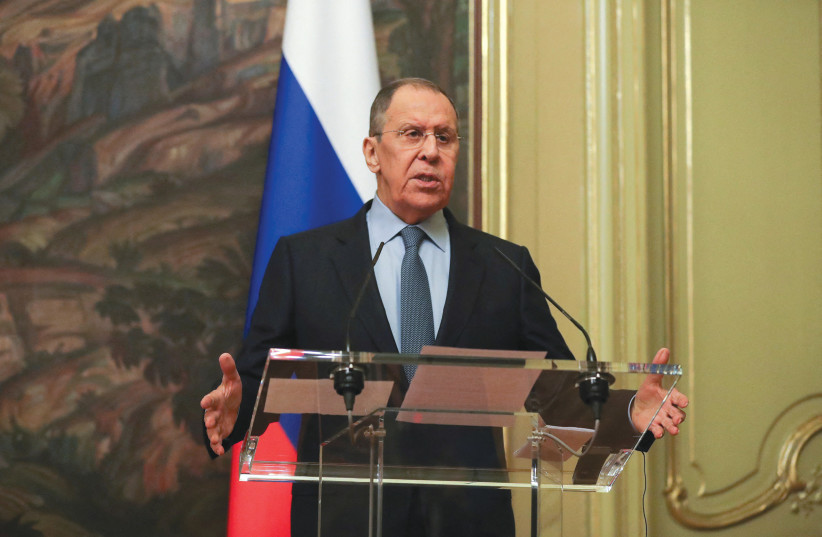
"The solution to the food problem requires a comprehensive approach, including those related to the lifting of sanctions restrictions that were imposed on Russian exports and financial transactions, and also requires Ukraine to clear all ports where ships are docked," said Rudenko. "Russia is ready to provide the necessary humanitarian passage, which it and does it every day."
Using food as a weapon
In a press briefing on Wednesday, State Department Spokesperson Ned Price said that the US rejected offers by Russia to lift sanctions in exchange for its aid to help in alleviating the food crisis.
"We certainly won't lift our sanctions in response to empty promises," said Price. "And we've heard empty promises before from the Russian federation. I think we have reason to be skeptical when we heard various pledges and offers from Russia."
"We find it appalling that Russia would seek to weaponize food and energy to try to bring the world to heel," Price continued. "The quickest solution to the rising commodities prices, the rising food prices that have had implications around the world is for the Russians to cease this brutal war, for Russia to stop blockading Ukraine's ports, to stop targeting grain silos, to stop targeting grain ships, and bring this violence to a close."
Price rejected Russia's claims that its sanctions were causing the food crisis, saying that Russia was engaging in disinformation.
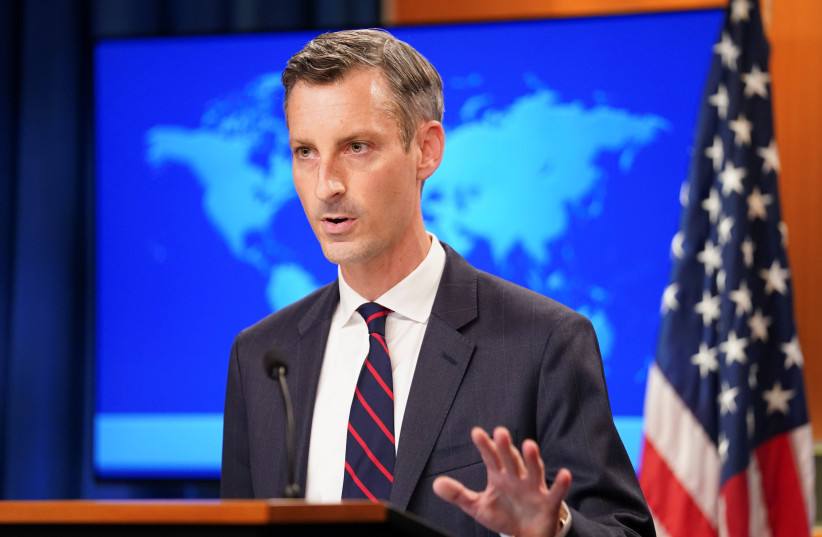
"We have never sanctioned food, we have never sanctioned agricultural goods from Russia. Unlike Russia, we have no interest in weaponizing food against the needy. Our non-food sanctions will remain in place until Putin stops his brutal war against Ukraine's sovereignty."
State Department Spokesperson Ned Price, May 25
Kuleba advised any world leaders considering Russia's offer "first visit the graves of killed Ukrainian children and talk to their parents."
<br>Antidote to blackmail
"Global cooperation" is the "antidote to Russia's blackmail," European Commission President Ursula von der Leyen said on Tuesday, at the World Economic Forum in Davos, Switzerland.
In response to allegations of blackmail by von der Leyen, Rudenko said that Russia was ready for dialogue and that he left "Ursula von der Leyen's statements on her conscience," TASS reported.
The EU has pledged to open "solidarity channels" with Ukraine - alternative logistics routes to help the country export grain. The bloc's agriculture policy chief on Tuesday said the idea had received full support from EU countries' agriculture ministers at a meeting in Brussels.
Kuleba has been meeting with foreign officials this week to discuss alternative routes and proposals to ship Ukraine's food products abroad. On Wednesday he spoke to Saudi Foreign Minister Prince Faisal bin Farhan and Peruvian Foreign Minister Cesar Landa on the subject. He and US Secretary of State Antony Blinken had reportedly on Tuesday "discussed ways to unblock Ukraine’s exports and ensure global food security," said Kuleba.
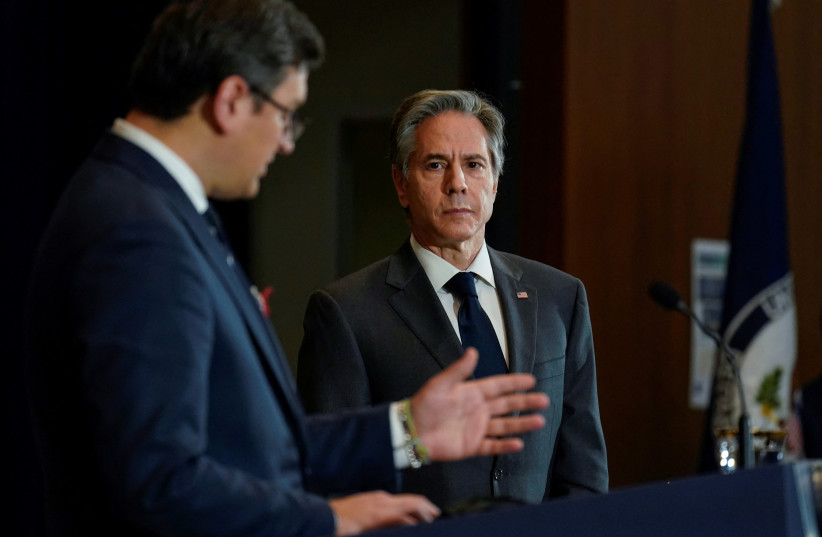
He also spoke on Friday to his Chadian counterpart Cherif Mahamat to discuss alternate ways to export to African states, which have been identified as particularly at risk over the food security crisis.
Rudenko said Russia was in talks with the UN on the issue, TASS reported on Wednesday. The Russian Foreign Ministry has repeatedly emphasized that Russia is ready to provide humanitarian corridors for ships in the Black Sea, where it has naval superiority over Ukraine.
An intentional food crisis?
Ukrainian, European, and American officials have claimed that Russia's stealing of agricultural products and equipment, blockades, and even strikes on food stores have exasperated the impacts of the food shortages.
"Russia’s forces have seemingly targeted silos; they have targeted ships containing foodstuffs."
State Department Spokesperson Ned Price, May 24
"In Russian-occupied Ukraine, the Kremlin's army is confiscating grain stocks and machinery (...) And Russian warships in the Black Sea are blockading Ukrainian ships full of wheat and sunflower seeds," said von der Leyen on Tuesday.
Ukraine's Foreign Ministry, Agricultural ministry and Main Intelligence Directorate (GUR) have all accused Russia of stealing hundreds of thousands of tonnes of grain from occupied Ukrainian territory.
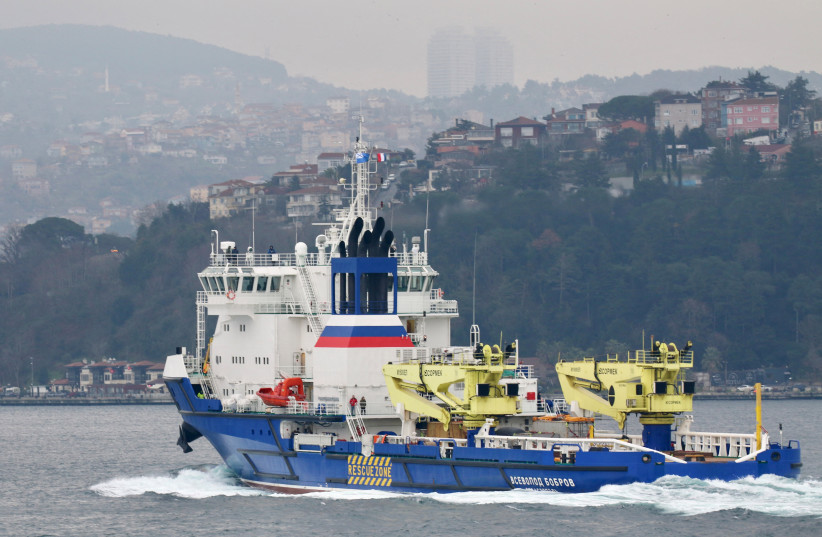
"Russian thieves steal Ukrainian grain, load it onto ships, pass through Bosporus, and try to sell it abroad," Kuleba claimed on Tuesday. "I call on all states to stay vigilant and refuse any such proposals. Don’t buy the stolen. Don’t become accomplices to Russian crimes. Theft has never brought anyone luck."
The Intelligence Directorate also claimed that Russia has stolen millions of dollars of farming equipment, as well as cabbage and potatoes. GUR has claimed that the stolen grain would likely be sold in Syria and other Middle Eastern countries.
"I completely reject it," Rudenko told TASS in response to the accusations of agricultural theft.
Ukrainian crop drop
Even without the alleged intentional attack on Ukrainian agriculture, Ned Price noted on Tuesday that Russia's invasion has "made impossible the task of completing the cycle of planting and harvesting for the country of Ukraine, a country that is a major supplier of both wheat and fertilizer to the region and well beyond."
In mid-April, Ukrainian agriculture officials said that Ukraine's 2022 corn exports could fall from 23.1 million tonnes in 2021 to 17 million in 2022. Ukraine is the world's largest producer and exporter of sunflower oil, but exports could drop this year from 5.3 million tonnes to 3.4 million tonnes. Reuters reported at the end of April that Ukrainian grain exports were cut in half — Falling from 86 million tonnes to 41.4 million tonnes.
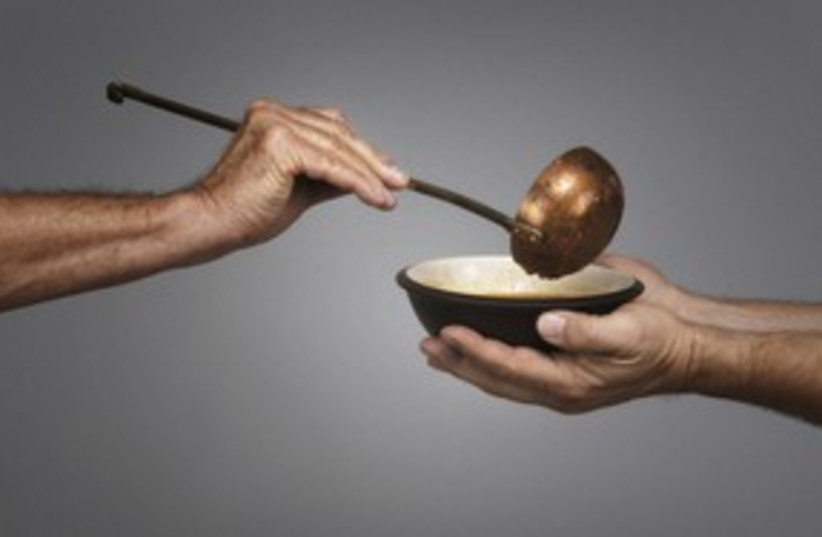
Energy, grain, fertiliser, and cooking oil prices have soared since the war's beginning.
"Russia puts millions of people at risk of hunger by blocking our ports," Kuleba warned on Saturday.
